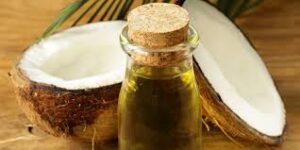As women transition into the post-menopausal phase of their lives, they may encounter new challenges in their sexual health, one of which can be painful intercourse—a condition medically known as dyspareunia. However, it’s important to remember that menopause doesn’t signal the end of a fulfilling sex life. In this blog, we will explore various natural remedies for painful intercourse after menopause to help alleviate discomfort and reclaim the joy of intimacy. Remember, while these suggestions can be helpful, it’s always wise to consult with a healthcare professional for personalized advice.
Contents
What Causes A Woman To Feel Pain During Intercourse?
 Pain during intercourse, medically known as dyspareunia, can be caused by a variety of factors, and these can differ based on individual circumstances. Common causes include:
Pain during intercourse, medically known as dyspareunia, can be caused by a variety of factors, and these can differ based on individual circumstances. Common causes include:
- Vaginal Dryness: One of the most common causes, particularly in postmenopausal women, is vaginal dryness. This can be due to hormonal changes, such as the decrease in estrogen. This affects the natural lubrication of the vagina.
- Vaginal Infections or Inflammations: Conditions like yeast infections, bacterial vaginosis, or sexually transmitted infections can cause pain due to inflammation, itching, and irritation in the vaginal area.
- Vaginismus: This is a condition where there is an involuntary tightness of the vaginal muscles during attempted intercourse, leading to pain. It can be triggered by factors like anxiety, fear of pain, or past traumatic experiences.
- Endometriosis: A condition where tissue similar to the lining inside the uterus is found outside the uterus. And, causing painful periods and pain during intercourse.
- Pelvic Inflammatory Disease (PID): An infection of the female reproductive organs, often caused by sexually transmitted bacteria, can lead to pain during intercourse.
- Structural Problems: Conditions like uterine fibroids or ovarian cysts can cause pain during intercourse due to pressure or structural changes in the pelvis.
- Psychological Factors: Emotional or psychological issues, including stress, anxiety, or relationship problems, can contribute to or cause pain during intercourse.
- Surgery or Injury: Previous surgeries, such as a hysterectomy, or injuries to the pelvic area can result in painful intercourse.
It’s important for women experiencing pain during intercourse to consult with a healthcare professional. They can provide a diagnosis and appropriate treatment plan. Understanding and addressing the cause is crucial for effective treatment and relief.
10 Natural Remedies For Painful Intercourse After Menopause
Painful intercourse after menopause, often due to vaginal dryness and other changes, can be managed with various natural remedies. These natural remedies for painful intercourse after menopause focus on alleviating symptoms and improving overall vaginal health:
Natural Lubricants
 One of the most immediate and effective ways to relieve painful intercourse after menopause is through the use of natural lubricants. Vaginal dryness, a common symptom during this phase, can be alleviated with substances like coconut oil, vitamin E oil, or aloe vera gel. These lubricants are beneficial because they are generally safe, and free from chemicals and irritants that may be found in some commercial products. Also, they can provide instant relief from friction and discomfort during sexual activity.
One of the most immediate and effective ways to relieve painful intercourse after menopause is through the use of natural lubricants. Vaginal dryness, a common symptom during this phase, can be alleviated with substances like coconut oil, vitamin E oil, or aloe vera gel. These lubricants are beneficial because they are generally safe, and free from chemicals and irritants that may be found in some commercial products. Also, they can provide instant relief from friction and discomfort during sexual activity.
Coconut oil, for instance, is known for its moisturizing properties. While aloe vera is soothing and can help with inflammation. Vitamin E oil is another great option as it aids in healing and moisturizing delicate skin. It’s important to choose a lubricant that is comfortable and does not cause irritation. And to apply it generously before intercourse.
Vaginal Moisturizers
In addition to lubricants used primarily during sexual activity, vaginal moisturizers are products designed for regular use to maintain adequate moisture in the vaginal tissues. These moisturizers often contain ingredients like hyaluronic acid. It is known for its ability to retain moisture or is based on natural oils. Unlike lubricants, they are meant to be applied on a routine basis, regardless of sexual activity, to provide longer-term relief from dryness.
Stay Hydrated
Hydration plays a crucial role in overall health and can also impact vaginal health. Drinking plenty of water each day helps maintain the body’s hydration levels, which in turn can support the health of mucous membranes, including those in the vaginal area. Adequate hydration can aid in maintaining natural lubrication. Ultimately, making this a simple yet effective way to potentially reduce discomfort during intercourse. It’s recommended to drink at least eight 8-ounce glasses of water a day, though individual needs may vary.
Dietary Changes
Diet can have a significant impact on menopausal symptoms, including those affecting sexual health. Incorporating foods rich in phytoestrogens can be beneficial. Phytoestrogens are plant-based compounds that mimic estrogen in the body and can be found in foods like soy products, flaxseeds, and tofu. These may help in balancing hormone levels and alleviating symptoms of menopause, including vaginal dryness. Additionally, omega-3 fatty acids, found in fish like salmon, mackerel, and sardines, as well as in walnuts and flaxseeds, are known for their anti-inflammatory properties and can support overall health.
Regular Exercise
Exercise is another key factor in managing menopausal symptoms. Regular physical activity, including pelvic floor exercises like Kegels, can improve blood flow to the pelvic region. It can enhance sexual function, and reduce discomfort. Pelvic floor exercises specifically strengthen the muscles of the pelvic floor, which support the uterus, bladder, small intestine, and rectum. Strengthening these muscles can help in improving control over these areas and enhance sexual pleasure. Additionally, regular exercise can help in maintaining a healthy weight, reducing stress, and improving overall well-being. All of which can positively impact sexual health.
Herbal Remedies
Herbs like black cohosh, red clover, and ginseng have been studied for their potential estrogen-like effects. This may be beneficial for postmenopausal women. Black cohosh, for instance, has been traditionally used to ease menopausal symptoms such as hot flashes and mood disturbances. Some believe it can also help with vaginal dryness. Red clover is a type of phytoestrogen that may mimic some effects of estrogen in the body. Ginseng is known for its overall health benefits and has been suggested to improve sexual arousal in menopausal women. However, it’s crucial to approach these remedies with caution.
Mindfulness and Relaxation Techniques
 Practices like yoga, meditation, and mindfulness are effective ways to manage stress and enhance overall well-being. These techniques promote relaxation, reduce stress, and improve body awareness. All of which are beneficial for sexual health. Yoga, for instance, combines physical postures with breathing exercises and meditation, leading to reduced stress and improved blood flow. It can positively affect sexual function. Meditation and mindfulness encourage a focus on the present moment and help develop a deeper awareness of bodily sensations. Potentially reducing pain perception and enhancing sexual experiences.
Practices like yoga, meditation, and mindfulness are effective ways to manage stress and enhance overall well-being. These techniques promote relaxation, reduce stress, and improve body awareness. All of which are beneficial for sexual health. Yoga, for instance, combines physical postures with breathing exercises and meditation, leading to reduced stress and improved blood flow. It can positively affect sexual function. Meditation and mindfulness encourage a focus on the present moment and help develop a deeper awareness of bodily sensations. Potentially reducing pain perception and enhancing sexual experiences.
Topical Applications
Applying cool packs or warm compresses to the vulva before intercourse can be a simple and effective way to reduce pain and discomfort. Cool packs can provide a numbing effect that may lessen sensations of pain, while warm compresses can increase blood flow to the area, promoting relaxation and natural lubrication. These applications can be used as a preparatory step before sexual activity to enhance comfort. It’s important to use these with a protective layer, such as a cloth, to prevent direct contact with the skin and to use them for only a short duration to avoid skin damage.
Bathing Practices
Proper genital hygiene can play a crucial role in maintaining vaginal health, especially post-menopause. Avoiding harsh soaps and douches that can disrupt the natural pH of the vagina is essential. Instead, using lukewarm water for bathing and choosing mild, fragrance-free soaps can help prevent irritation and dryness in the vaginal area. Additionally, after bathing or swimming, it’s advisable to dry the genital area thoroughly. Because excess moisture can lead to discomfort or infections.
Professional Guidance
Lastly, while natural remedies can be helpful, consulting with a healthcare provider is vital for anyone experiencing painful intercourse after menopause. A healthcare provider can offer personalized advice based on individual health history and current symptoms. They can rule out other possible causes of discomfort. Hence, discuss the safety and efficacy of natural remedies and supplements, and guide other treatment options, including hormonal therapy or specialized physical therapies if necessary. This professional guidance ensures that any approach taken is safe, effective, and tailored to the individual’s specific health needs.
Incorporating these strategies can be part of a comprehensive approach to managing postmenopausal symptoms, including painful intercourse. It’s important to combine lifestyle changes, natural remedies, and professional medical advice to achieve the best outcomes for sexual health and overall well-being.
Conclusion
In conclusion, natural remedies for painful intercourse after menopause are about understanding and addressing the changes your body is going through. From natural lubricants and dietary adjustments to pelvic exercises and herbal remedies, there are numerous ways to alleviate discomfort and enhance your sexual health. Remember, staying hydrated, practicing mindfulness, and maintaining proper hygiene are simple yet effective steps.
Most importantly, always consider seeking advice from a healthcare professional for personalized care. By combining these natural strategies with professional guidance, you can find relief, reclaim comfort, and continue to enjoy a fulfilling intimate life. If you are facing menopause-related issues, menopause treatment at HerMantra can help. Book your free trial online menopause treatment session now.


